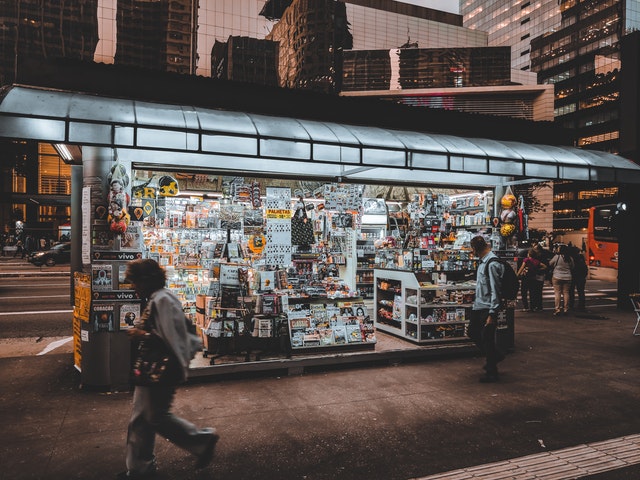🎓 The Media reality in United Kingdom and Ibero-America
Recently, as part of the course on Media, taught by Dr Adriana Mutu as part of the degree in Advertising and Public Relations, two sessions were held taking an in-depth look at media systems in the United Kingdom and Latin America. In the case of Britain, Oana Marocico, journalist for BBC News and TV Current Affairs, gave a talk. Marocico is currently working for BBC Panorama, an investigative documentary programme broadcast in the UK.
Fecha: Friday, 04 de June de 2021 a las 17:45h
The Media reality in United Kingdom and Ibero-America
Recently, as part of the course on Media, taught by Dr Adriana Mutu as part of the degree in Advertising and Public Relations, two sessions were held taking an in-depth look at media systems in the United Kingdom and Latin America.
In the case of Britain, Oana Marocico, journalist for BBC News and TV Current Affairs, gave a talk. Marocico is currently working for BBC Panorama, an investigative documentary programme broadcast in the UK.
The journalist has reflected on the role of independent media and professional journalists: “An independent media is like an old friend, always there to explain, in simple terms, what a political decision means or simply to let us know that something important is happening. Being friends with your audience implies a level of trust and credibility that can’t be compromised or deflected, so we must always try to meet expectations... and never let a friend down”.
When it comes to selecting current issues that need covering, Marocico has confessed that she is guided by listening to society, and she considers it essential for newsrooms to welcome a plurality of points of view. She also pointed to the desirability of personal involvement: “I think the complexity of the stories, the subtleties and nuances are best reflected in those who care to relate to them through personal experiences or through broader interactions with different communities”.
Marocico explained that the BBC has dedicated resources to ensure that fake news and misinformation is countered and addressed: “We have a news correspondent who covers this specific topic and tells stories where teams are trying to debunk some of the lies or myths found online”.
Oana Marocico is a creative multimedia journalist with extensive experience in television, documentary filmmaking and behind-the-scenes work (self-portrait, editing, directing, research, interviews, etc.), with a passion for investigation, human rights and digital storytelling. In 2012 she received the European Reporter of the Year award from the European Commission in Romania.
Media in Ibero-America
The Ibero-American media universe was the subject of a talk by Carolina Loza, a freelance journalist who works in Ecuador and Colombia for the New York Times, NPR and Foreign Policy, among others.
In her presentation, she reflected on the role of public media in Ibero-America: “Public networks are still a work in progress. Unfortunately, they have been used in many countries as a tool of the government of the day”. For this reason, one of the priorities should be to “strengthen their functioning and editorial independence”. The relationship between the media and governments varies. “There are some countries with governments where the press can do its job without major problems,” but in other countries the government’s eagerness to control the press puts journalists at risk. And the situation is aggravated when the presence of armed groups and organised crime silences many journalists and becomes a threat to those trying to do their job, she described.
As for the role of journalists in the region, Loza says that, in addition to controversial figures, “there are journalists who have done great work and are respected for their impartiality”. However, in general, there is “an erosion of the reputation of traditional media in several countries; this is also fuelled by fake news and the use of networks such as WhatsApp”.

|
|


